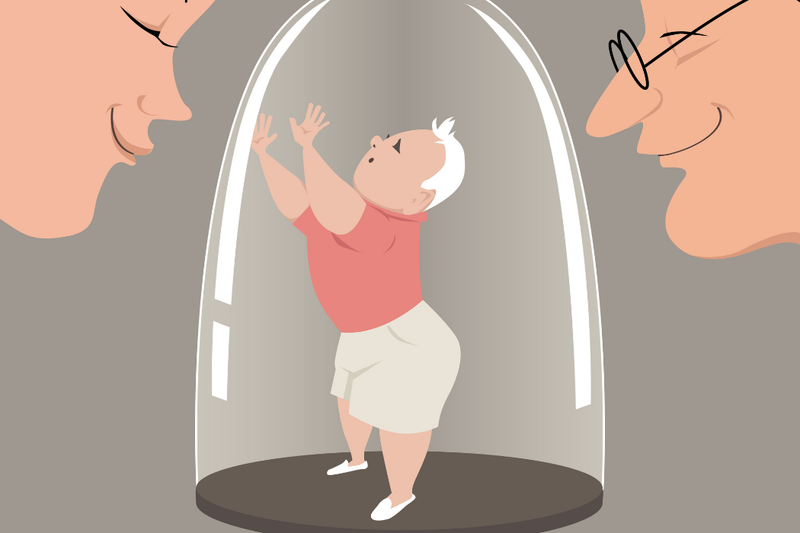Nobody tells you how heavy it feels to be young right now. If you’re Gen Z, maybe you don’t remember a time when the world felt safe—when the future seemed like something to look forward to, not just survive.
There’s a reason your chest feels tight at 2AM and you can’t always name it. We grew up with a million voices in our ears, a hundred ways to fall short, and a future that’s always shifting under our feet. I want to talk about what’s real—the actual reasons all that anxiety isn’t “just in your head.”
Because you’re not broken, you’re reacting to a world that keeps changing the rules. Let’s name it. Let’s look it in the eye. Here’s why Gen Z might be the most anxious generation yet.
1. Pervasive Social Media Influence
Ever notice how you feel worse after scrolling through Instagram, even if you didn’t see anything overtly negative? That’s not just you. Social media hands you a thousand highlight reels for every rough day you have, and it’s easy to start believing everyone’s doing better, looking better, living louder.
The thing is, nobody posts the late-night breakdowns or the moments when they feel like a fraud. You see the best angles, the best vacations, the best jokes. But comparison is a thief, and these platforms know exactly how to keep you hooked—likes, comments, views—they’re all little sugar rushes for your self-esteem.
Gen Z lives with entire identities on the internet, and the pressure to look perfect doesn’t stop when you close the app. There’s an invisible scoreboard, and you’re always aware if you’re winning or losing. That constant comparison? It quietly chips away at your confidence, and it’s exhausting. You can’t unfollow reality.
2. Economic Uncertainty
Picture sitting in a café staring at a bill with your name printed in bold, knowing you don’t have enough in your account to cover it. That queasy feeling is all too familiar to Gen Z. You didn’t get to believe in the old promise that hard work would equal financial security—because you watched your parents struggle, and now the costs just keep climbing.
Student loan debt isn’t just a number; it’s a shadow that shows up every time you dream about your future. Rent is sky-high. The job market feels like a lottery with too many tickets missing. Even the idea of owning a home seems like a cruel joke sometimes.
Money anxiety isn’t just about numbers on a page. It’s the constant mental math—can I afford this? Am I falling behind?—that never lets you relax. Gen Z learned to be anxious about money before they even had any. That’s not laziness, that’s living with a system that keeps moving the goalposts.
3. Academic and Professional Pressures
You remember the first time someone asked, “What do you want to be when you grow up?” as if your answer would shape the rest of your life. Those questions never stopped—they just changed from cute to crushing. Every grade, every test, every extracurricular is another brick on your back.
There’s no room to just figure things out anymore. Instead, you’re supposed to have it all mapped: perfect grades, volunteer work, sports, internships, maybe even a side hustle. It’s not ambition—it’s survival. The fear of missing out isn’t just about parties, it’s about your entire future.
Colleges are harder to get into, jobs require experience you can’t get without already having a job, and all around you, it looks like everyone else is already winning. That pressure doesn’t make you work harder; it makes you question if you’ll ever be good enough. No wonder the anxiety hits.
4. Global and Environmental Concerns
Imagine growing up knowing the planet might not be safe in your lifetime. Climate change isn’t just a lesson in science class—it’s a looming threat that shapes how Gen Z dreams, plans, and worries. You see wildfires, floods, and melting ice caps every time you check the news—it’s hard to tune that out.
Activism is in Gen Z’s DNA, but so is the exhaustion that comes from caring so much. There’s a sense of urgency, but also powerlessness. You’re told to recycle, but oil companies still pollute; you march in protests, but politics move slow as molasses.
This isn’t some abstract fear. It’s a daily, gnawing sense that your future is on the line, and no one with actual power is listening. That weight isn’t just anxiety—it’s grief for a world you’re desperate to save but can’t fix alone.
5. Decline of Traditional Support Systems
There’s a strange kind of loneliness that comes when you don’t have anywhere to turn. Traditional support systems—churches, community centers, extended families—aren’t part of daily life anymore. That’s not entirely by choice. The world changed, families moved, institutions lost trust.
You might want someone to talk to who isn’t just another person online. But where do you go? The spaces that once held people together now stand empty or feel out of step with the reality you live.
Without those anchors, it’s easier to drift. You feel like you have to figure everything out alone. It’s not just about religion or tradition—it’s about having a place where you don’t have to explain yourself, and that’s becoming rare. That loss quietly amplifies anxiety, even if you can’t always say why.
6. Overprotective Parenting and Reduced Resilience
Remember when scraped knees were just part of growing up? For a lot of Gen Z, childhood came wrapped in bubble wrap—well-meaning parents, scared of the world, stepping in before anything could go wrong. It was meant to keep you safe, but it also meant you rarely got to fail safely.
Resilience is built through struggle—learning, messing up, standing back up. When every risk is managed away, you never practice handling life’s curveballs. Small problems feel overwhelming, because you never got a chance to solve them on your own.
It’s not about blaming parents. It’s about a world that made everyone afraid, parents included. But when you don’t get to stretch your wings, anxiety grows instead. Gen Z is smart, but sometimes they doubt if they can handle the messiness of real life, and that doubt can haunt every decision.
7. Technological Overload
Do you feel like your brain is always buzzing, even when you’re “relaxing?” That’s the hum of technological overload—a sound Gen Z grew up with. Screens never go dark. Notifications keep coming. There’s always something new to check, something urgent to respond to.
Multitasking used to be a skill; now it’s a survival tactic. But your brain wasn’t built for this much input. Emails, DMs, news alerts—they all demand attention, and it’s exhausting trying to keep up. There’s no off button.
When everything is constant, nothing feels important. You start to crave silence but don’t know how to get it. That buzzing isn’t just noise; it’s anxiety in disguise. Gen Z isn’t weak for feeling overwhelmed—they’re overloaded, plain and simple.
8. Sleep Deprivation
There’s a special kind of exhaustion that comes from trying to do everything and never sleeping enough. Staying up late isn’t just rebellion—it’s necessity. Homework piles up, group chats stay active, and FOMO won’t let anyone log off.
Sleep is the first thing sacrificed. It’s easy to think you can catch up on weekends, but your brain keeps score. The result? You drag yourself through days half-awake, caffeine in hand, hoping nobody notices how tired you feel inside.
Lack of sleep doesn’t just make you groggy. It makes every problem feel bigger, every mood swing sharper, every day a little harder to face. The world expects you to function at your best, but your body is running on empty. That’s a recipe for anxiety, and Gen Z knows it well.
9. Cyberbullying
You never really get to leave the bullies behind—not when they travel in your pocket. Cyberbullying is a shadow that follows you home. The insults don’t stop at the school gates; they show up in your DMs, your group chats, your comments.
One mean post can travel faster than any rumor ever could. The worst part is how easy it is to feel alone with it, even when you’re surrounded by people online. You start to doubt if you’re really as strong as you thought.
The bruises aren’t visible, but they sting just as much. There’s no safe place to unplug because your social life lives on your phone. For Gen Z, the anxiety of being attacked online isn’t paranoia—it’s a daily risk.
10. Loneliness
How can you be surrounded by people—online, in class, at work—and still feel desperately alone? That’s the silent epidemic running through people today. Likes and comments aren’t the same as connection. You crave someone who really gets you, someone who sees past the profile.
Screens can’t hug you back. Group chats don’t fill the gaps when you need someone to show up in person. It’s easy to feel disposable, like you could disappear and nobody would notice.
Loneliness isn’t just sadness—it’s a hollow ache that makes every other problem sting more sharply. Gen Z might be the most connected generation, but sometimes it feels like nobody’s really listening. That emptiness? It’s real, and it hurts.
11. Political and Social Instability
Think about the last time you watched the news without feeling your stomach drop. For people of this generation, that’s rare. Political fighting, protests, violence—it’s all broadcast live, right into your living room.
You grow up seeing leaders argue, systems fail, promises break. The world feels unstable, and it’s hard to believe anyone has things under control. But you’re supposed to act like it’s all normal—to do your homework, apply for college, plan for a future that might not even exist.
That disconnect is dizzying. It’s no wonder Gen Z runs anxious; how do you build hope on shaky ground? When chaos is always just a scroll away, your sense of safety never gets a chance to settle.
12. Lack of Control and Uncertainty
Ever feel like life is happening to you, not for you? Gen Z knows this feeling intimately. Decisions get made by politicians, algorithms, and economic crashes, often without your input.
You’re told to plan for the future, but nobody tells you what it’ll look like. One day the rules change—college requirements, job markets, even basic rights. The world’s always in motion, and you’re left guessing.
Living in uncertainty is like trying to run on shifting sand. Every step is a maybe. That’s not just stressful, it’s exhausting. You long for a sense of control, but the world keeps the steering wheel just out of reach.
13. Fear of Missing Out (FOMO)
You know that twinge—when you see photos from a hangout you weren’t invited to? FOMO isn’t just a meme for this generation; it’s a daily companion. Every scroll reveals another event, another inside joke, another reminder you’re on the outside.
It doesn’t matter if you didn’t even want to go. The feeling sticks: everyone else is living more, doing more, laughing harder. You’re not just missing out on fun—you’re missing out on belonging.
FOMO eats away at self-worth. It’s the voice in your head saying, “If you were really wanted, you’d be there.” That’s a hard story to silence, especially with social media always narrating what you’re missing. For Gen Z, FOMO isn’t an option—it’s background noise.
14. Academic Stress
Remember when school was just about showing up, doing your best, and then heading home? Those days are history. Now it’s constant: assignments online, grades updated by the minute, teachers and parents tracking every step.
Every test feels like it could make or break your future. The competition is fierce—everyone seems to be gunning for the top, and there’s no room to fall behind. Even downtime comes with guilt.
Academic stress is more than just homework. It’s the pressure to be exceptional, to juggle everything perfectly, and to never let anyone see you struggle. That’s a heavy burden for any teenager, especially when it feels like the whole world is watching.
15. School Shootings and Violence
You shouldn’t have to map out exits every time you walk into a classroom. For this generation, the reality of school shootings and violence is never far away. Lockdown drills are as normal as fire drills, but the fear lingers long after the bell rings.
Every news alert, every siren, every time a friend doesn’t answer right away—your brain spins worst-case scenarios. There’s no such thing as “it could never happen here.” That innocence is gone.
Anxiety grows in the spaces where safety used to live. Gen Z doesn’t just worry about grades or fitting in; sometimes they worry about surviving another day at school. It’s a brutal, unfair burden to carry.
16. Influencer Culture
Imagine waking up and feeling like the whole world is a stage—and you forgot your lines. Gen Z lives with influencer culture everywhere. It’s not just celebrities; it’s your classmates, your friends, random kids your age racking up likes from their bedrooms.
It’s hard not to compare your real life to someone else’s curated feed. Every post is a brand, every story an ad. You start wondering if you’re falling behind in the game of “being interesting.”
This pressure isn’t harmless. It fuels anxiety—about looks, success, even about being “real” enough. Gen Z knows how fake it all can be, but that doesn’t stop the urge to measure up. Sometimes, it’s exhausting just trying to keep up appearances.
17. Information Overload
You open your phone to check one thing, and before you know it, you’re drowning in news, memes, and everyone else’s opinions. Information overload is an everyday hazard. There’s no limit to what you can learn—until your mind won’t absorb any more.
It’s not just about school or work. It’s the constant updates: global crises, trending hashtags, celebrity scandals. You’re expected to care about everything, and sometimes it feels like caring is a full-time job.
Your brain never gets a break. It’s exhausting, and it can make even small decisions feel impossible. Gen Z isn’t apathetic—they’re overwhelmed by the sheer weight of knowing too much, too fast.


















